Money in Portugal Travel Tips
Portugal is no longer the bargain basement of Europe that it was in the 60s and 70s . Prices have increasingly aligned with the other countries of the European Union, but it is cheaper than neighboring Spain and much less expensive than the countries of the north, especially Scandinavia.
There are no limits on foreign currencies brought to Portugal, but visitors are advised to declare the amount carried. This proves to the Portuguese Customs that the coin came from outside the country and allows it to withdraw the same amount or less.
Euro currency
The euro, the new single European currency, became the official currency of Portugal and 11 other countries on 1 January 1999, but not in the form of money. On 1 January 2002, euro notes and coins were introduced. During a transitional period of two months, the notes of the shield, the old currency of Portugal, were withdrawn from circulation. The euro symbol is €; Its official abbreviation is EUR.
Its a good idea to exchange at least some money - just enough to cover occasional airport charges and hotel transfers - before leaving home (although you dont expect the exchange rate to be optimal) to avoid lines at the airport. (ATMs).
Frommer lists exact prices in the local currency. However, rates fluctuate, so before leaving, check with an exchange site such as www.oanda.com/convert/classic for up-to-the-minute rates.
ATMs
The easiest and best way to get money away from home is at an ATM, sometimes called an "ATM" or "ATM." The Cirrus (tel. 800 / 424-7787; www.mastercard.com) and PLUS networks (tel. 800 / 843-7587; www.visa.com) span the globe. Go to your bank card website to find the ATM locations at your destination. Make sure you know your Personal Identification Number (PIN) and your daily withdrawal limit before leaving. note:Many banks charge a fee each time you use a card at another banks ATM, and this fee may be higher for international transactions (up to $ 5 or more) than for domestic transactions (where they are rarely more than $ 2). . In addition, the bank from which to withdraw money may charge its own fee. For international withdrawal fees, ask your bank.
Note: Banks that are members of the Global ATM Alliance do not charge transaction fees for cash withdrawals at other Alliance member ATMs; These include Bank of America, Scotiabank (Canada, the Caribbean and Mexico), Barclays (UK and parts of Africa), Deutsche Bank (Germany, Poland, Spain and Italy) and BNP Paribus (France).
ATM cards are abundant in Portugal, even in small towns, but especially in Lisbon and Porto. There is a typical $ 1 to $ 5 surcharge per withdrawal. Debit cards work almost like an ATM card. Nationwide, this card can be used to withdraw money from associated banks or scattered ATMs.
It is always advisable to carry cash in various ways during the holidays: a mix of cash, credit cards and travelers checks. You should also exchange enough money to cover airport incidents, tips and transportation to the hotel before leaving home, or withdraw money upon arrival at an airport ATM.
In many international destinations, ATMs offer the best exchange rates. Avoid exchanging money at currency exchange offices and commercial hotels, which usually have the highest transaction fees.
Major Change in Credit Cards
Chip and PIN represent a change in the way credit and debit cards are used. The program is designed to reduce fraudulent use of credit cards. More and more banks are issuing Chip and PIN versions of their debit or credit cards. In the future, more and more vendors will request a four-digit personal identification number or PIN, which will be entered on a keypad next to the cash register. In some cases, a waiter will bring a hand model to your table to verify your credit card.
Warning: Some merchants in Portugal may not accept your credit card unless you have a computer chip embedded in it. The reason? To reduce credit card fraud. More and more places in Portugal are moving from magnetic stripe credit cards to the new "Chip and PIN" system.
In the technology swap, some retailers falsely concluded that they can no longer carry swipe cards or can no longer carry subscription cards that no longer have PINs.
For now, both old and new cards are used in stores, hotels and restaurants, regardless of whether they have old credit and debit card machines or new Chip and PIN machines installed. Expect a lot of confusion before arriving in Portugal or elsewhere.
In the meantime between traditional credit cards and those with an embedded computer chip, heres what you can do to protect yourself:
There are no limits on foreign currencies brought to Portugal, but visitors are advised to declare the amount carried. This proves to the Portuguese Customs that the coin came from outside the country and allows it to withdraw the same amount or less.
The euro, the new single European currency, became the official currency of Portugal and 11 other countries on 1 January 1999, but not in the form of money. On 1 January 2002, euro notes and coins were introduced. During a transitional period of two months, the notes of the shield, the old currency of Portugal, were withdrawn from circulation. The euro symbol is €; Its official abbreviation is EUR.
Its a good idea to exchange at least some money - just enough to cover occasional airport charges and hotel transfers - before leaving home (although you dont expect the exchange rate to be optimal) to avoid lines at the airport. (ATMs).
Frommer lists exact prices in the local currency. However, rates fluctuate, so before leaving, check with an exchange site such as www.oanda.com/convert/classic for up-to-the-minute rates.
The easiest and best way to get money away from home is at an ATM, sometimes called an "ATM" or "ATM." The Cirrus (tel. 800 / 424-7787; www.mastercard.com) and PLUS networks (tel. 800 / 843-7587; www.visa.com) span the globe. Go to your bank card website to find the ATM locations at your destination. Make sure you know your Personal Identification Number (PIN) and your daily withdrawal limit before leaving. note:Many banks charge a fee each time you use a card at another banks ATM, and this fee may be higher for international transactions (up to $ 5 or more) than for domestic transactions (where they are rarely more than $ 2). . In addition, the bank from which to withdraw money may charge its own fee. For international withdrawal fees, ask your bank.
Note: Banks that are members of the Global ATM Alliance do not charge transaction fees for cash withdrawals at other Alliance member ATMs; These include Bank of America, Scotiabank (Canada, the Caribbean and Mexico), Barclays (UK and parts of Africa), Deutsche Bank (Germany, Poland, Spain and Italy) and BNP Paribus (France).
ATM cards are abundant in Portugal, even in small towns, but especially in Lisbon and Porto. There is a typical $ 1 to $ 5 surcharge per withdrawal. Debit cards work almost like an ATM card. Nationwide, this card can be used to withdraw money from associated banks or scattered ATMs.
In many international destinations, ATMs offer the best exchange rates. Avoid exchanging money at currency exchange offices and commercial hotels, which usually have the highest transaction fees.
Major Change in Credit Cards
Chip and PIN represent a change in the way credit and debit cards are used. The program is designed to reduce fraudulent use of credit cards. More and more banks are issuing Chip and PIN versions of their debit or credit cards. In the future, more and more vendors will request a four-digit personal identification number or PIN, which will be entered on a keypad next to the cash register. In some cases, a waiter will bring a hand model to your table to verify your credit card.
In the technology swap, some retailers falsely concluded that they can no longer carry swipe cards or can no longer carry subscription cards that no longer have PINs.
For now, both old and new cards are used in stores, hotels and restaurants, regardless of whether they have old credit and debit card machines or new Chip and PIN machines installed. Expect a lot of confusion before arriving in Portugal or elsewhere.
In the meantime between traditional credit cards and those with an embedded computer chip, heres what you can do to protect yourself:
- Get a four-digit PIN from your credit card issuing bank before leaving home.
- Call the number on the back of each card and ask for a four-digit PIN.
- Keep an eye on the correct logo displayed on the retailers window. either Visa or MasterCard, not Maestro, Visa Electron or Carte Bleue.
- Be aware that your Amex card will work where an Amex logo is displayed, but the card is not as accepted as Visa and MasterCard.
- As a last resort, make sure you have enough money to cover your purchase.
Outros Artigos Populares no Blogue
-
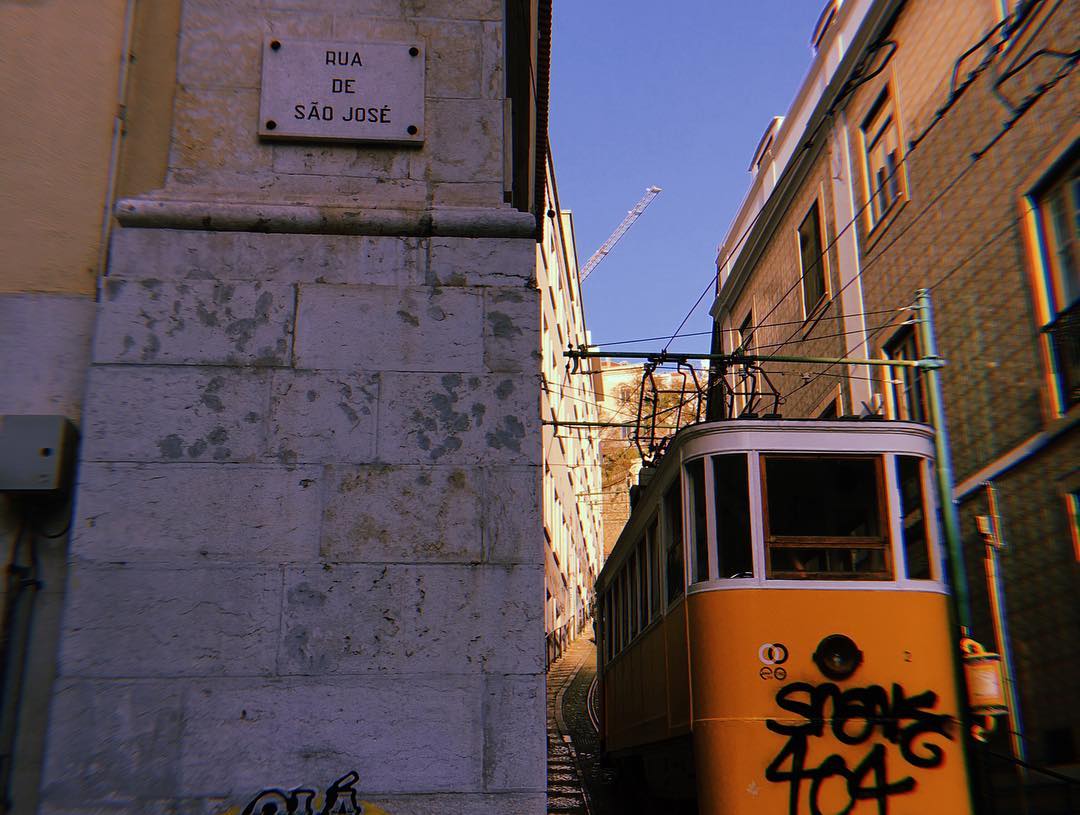

Gloria Elevator of the most beautiful in the city Lisbon Portugal
This is one of the three elevators that are located in the Portuguese capital (excluding the Santa Justa Lift), perhaps the best known. Lisbon is... -
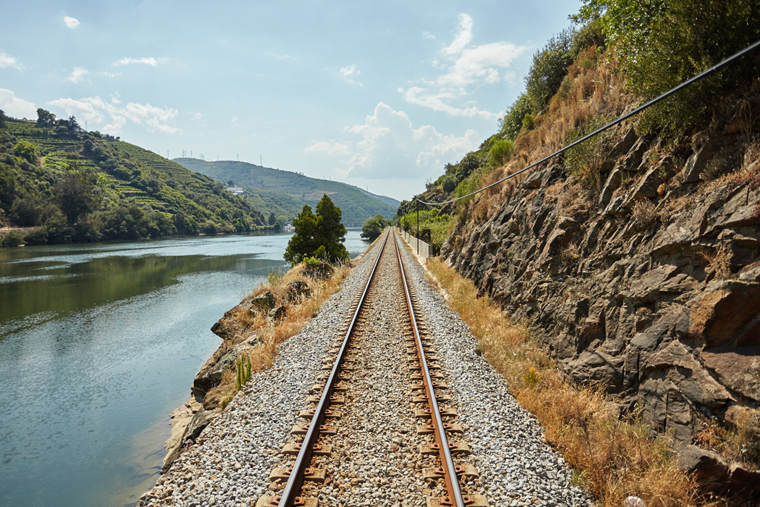

This is the most beautiful line in Portugal and one of the most beautiful in Europe
Ligação ferroviária de 36 quilómetros, entre a Régua e o Tua, Da Régua ao Pinhão e daí at... -
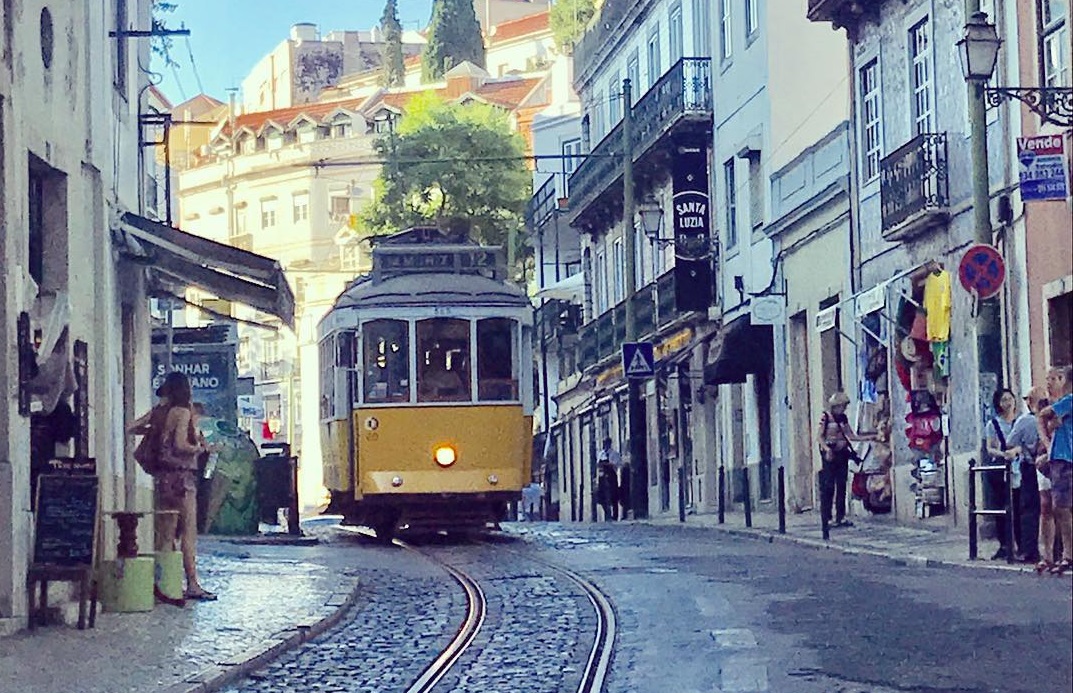

The 10 Best Cities to Visit in Portugal
Óbidos: This town is the most perfectly preserved 13th century village in central Portugal. Its historic authenticity is the main concern ... -


What to do in Portugal? Find out here
In addition to the cliff-lined beaches of the Algarve, Portugal is a country of bucolic landscapes and cities rich in culture. The distant strain... -
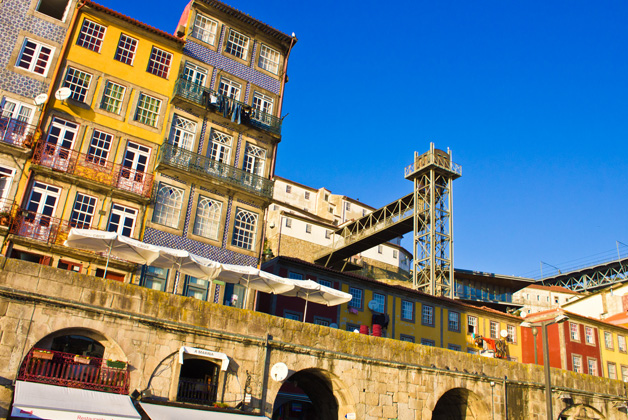

Visit Rua da Lada is in the picturesque neighborhood of Ribeira Porto Portugal
Picturesque street of the Ribeira neighborhood, which is nestled between the quays (dock) and the typical houses of this fishermen area. Street o... -


Azores awarded the best European holiday destination
The Azores have won the Quality Coast Gold Award as the best sustainable holiday destination in Europe. With the main objective of promotin... -
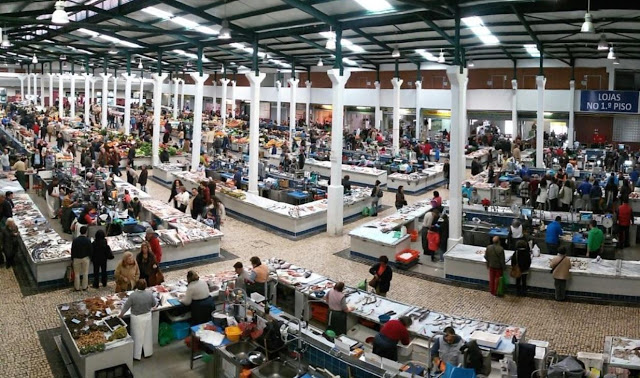

Setúbal in Portugal fish market is one of the best in the world
Fish markets around the world can show local fishing but also some of the culture of the area. These are the words of Mark Drabich, president of ... -


Sao Portuguese are the 2 best wines in the world Pera Manca and Barca Velha
What makes a great wine a great wine and be it consistently for decades? Nothing better to answer this question than a vertical tasting of Barca ...
